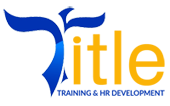| Code | Date | City | Fees | Register |
|---|---|---|---|---|
| T035 | April 21, 2024 - April 25, 2024 | Dubai – UAE | $ 5000 |
Register Course.. |
| T035 | July 14, 2024 - July 18, 2024 | London | $ 5000 |
Register Course.. |
| T035 | October 20, 2024 - October 24, 2024 | Istanbul | $ 5000 |
Register Course.. |
| T035 | January 12, 2025 - January 16, 2025 | Online | $ 1500 |
Register Course.. |
________________________________________________________________________________________________
Objectives
- On completion of the course, participants will be able to:
- Understand the concept of an instrumentation system: to support accurate measurements , the concepts accuracy and precision
- Build, program, calibrate and use a microprocessor-based instrumentation system .
- Be able to analyse and design an instrumentation system, dealing with the concepts of dynamic range, signal noise ratio, and error budget .
- Control noise, either intrinsic or external (interference).
- Understand the operation of various instrumentation transducers .
- Select and apply A/D conversion techniques such as successive-approximation, dual slope conversion, voltage frequency .
- Understand on a theoretical level carrier signal and signal averaging methods for extracting a signal from noise.
- Employ proper safety practices during installation, calibration, and maintenance procedures .
- Connect wiring in an electronic control loop .
- Select and operate test equipment to measure electrical properties and calibrate instruments .
- Calibrate electronic transmitters and controllers .
- Recognize the importance of maintenance in the proper operation of instruments and control systems.
- Use manufacturer’s guidelines to configure instruments for specific process applications.
- Explain installation considerations and practices for instruments and control systems .
- Install electronic instruments using manufacturer’s guidelines and ISA’s recommended practices and procedures .
- Be knowledgeable about the type of compressors and systems .
- Be aware of system design considerations in compressed air generation and distribution .
- Be able to comprehend the principle components, basic operation, and safety considerations associated with air compressors and compressed air systems. .
- Use P&ID, wiring, schematic, and installation detail drawings to install, calibrate, and verify proper operation of instruments .
- Explain methods for reducing electrical hazards including intrinsically safe installation .
- Describe the trend toward using field bus systems and personal computers in process control .
- Understand the relevance of ISO 9000 standards to maintenance practices and procedures.
The Contents
- Introduction and course overview .
- Introduction
- Maintenance Science and Technology :
- Protective Maintenance.
- Predictive Maintenance.
- Preventive Maintenance.
- Productive Maintenance.
- TROUbleshooting
- Repairs and Corrective Maintenance.
- Overhaul
- Total Productive Maintenance (TPM) :
- Goals of TPM.
- Components of TPM.
- Air Compressors Operating and Maintenance :
- Economics of compressors Operating and Maintenance .
- Air Compressor design, operation, maintenance and troubleshooting.
- Measurements and Inspections.
- Failure analysis .
- Air Compressor Plant Instrumentation :
- Sensors technology.
- Monitoring systems :
- Components .
- Storing and Retrieving computerized systems.
- Audio-Video, Data Loggers And Remote Surveillance Applications.
- Measurements, Inspection Tools, Devices, Apparatus and Equipment.
- Calibration and Corrections.
- Resources – Checklists.
- Sources of Errors in Measurements .
- Infra-Structure Systems .
- Maintenance on Instrument & plant air compressors :
- Basic concepts :
- Preventive Productive .
- Corrective maintenance.
- Failure analysis .
- Faults and Errors Diagnostics .
- Design, versatility, changes and improvements.
- Reliability and Current Best Practices.
- Case Studies and Applications .
- Course summary .
The Discount
10% in case of Three P. (or more)
